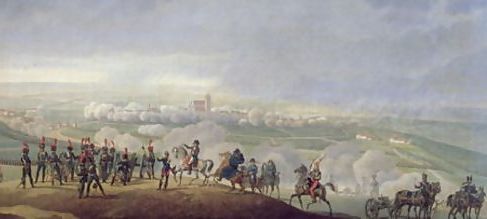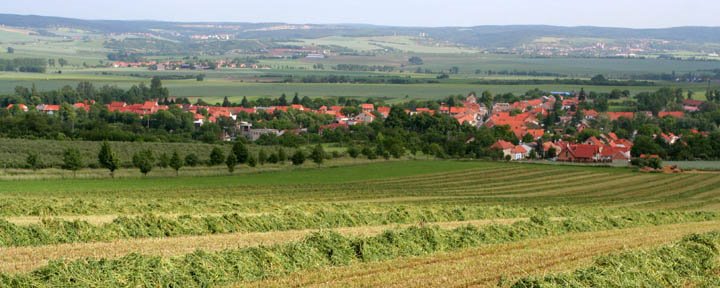The Land in my Mind's Eye
Juxtaposition, 11.18.13
In my mind's eye, when I read about the Holocaust, I always see a grey landscape. It is bleak, without color or beauty. The light is dim. Clouds hang low. It is chilly and damp and miserable.
In my mind's eye, when I hear about my great-grandparents' life in Galicia, it too is bleak and unfriendly. Everything is dried up and spare, like late November. No leaves or greenery. Not even any snow to soften things. It is a hardscrabble existence. The land is not giving. It is like a dry, dusty, dirty barnyard. It is the remnants of gardens that offered up a few morsels to eat, some potatoes in the cellar. It is scrawny chickens pecking the dirt. It is cold and inhospitable.
And then, there I was, in Czechoslovakia and Southeastern Poland in early summer. Beautiful and green. Warm and breezy. Fertile planes and rolling hills. A landscape that was immediately familiar to me, friendly even. It reminded me of my beloved Wisconsin. Tall grass harvested for hay. Large colorful fields of poppies. Window boxes overflowing with flowers. Lovely and soft.
And the towns and cities had stately buildings, charming line-ups of row houses, avenues, and squares. The villages had darling cottages. Things were a little rundown, but it was easy to see the faded beauty. There was nothing ostentatious, just pleasant. Attractive. Appealing.
Sure, the ugly gray communist buildings, unceremoniously and thoughtlessly situated, had an ominous tone, but they weren't there when my great-grandparents were there, and they weren't there when the Jews were rounded up and sent to the camps. They came afterwards. They cast shadows, sometimes dominating the scene, but even they could not compete with the hills and the greenery, with the skies and the fragrances.
And now, all these years later, I find that I barely remember the beauty of the landscape. I look again at the photos with wonder. I look at images online with disbelief. The bleakness we often encountered in the people we met and in the almost desperate economic situation made me remember only the gray, only the pall and the heaviness. I am startled once again to see the greenery and the picturesque scenes.
One of our first stops was at Austerlitz, site of one of Napoleon's greatest victories. The battle was fought in December, and all the paintings of it show a barren landscape. But there we were in late June, and it was green and flowering. The land acted like it didn't know anything about the blood shed on these very fields many years ago. In summer, the land was productive and verdant. It was filled as always with life-giving grasses, oblivious to the countless lives that had been brutally lost upon it. And I was uneasy about this juxtaposition. I was touched by its ordinariness and its beauty.
Austerlitz was a preview of this same confusion that I would encounter at every stop, a paradox that I continue to wrestle to make space for within my mind's eye.


